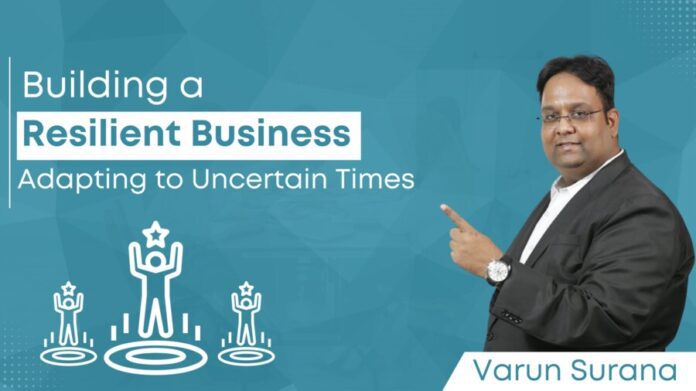Adaptability and resilience are crucial traits for every firm in the fast-paced, constantly changing business environment today. Businesses must overcome obstacles to tackle uncertainty, which is characterized by global crises, economic upheaval, and technology breakthroughs. This article discusses the value of creating a resilient business and offers tips for adjusting to changing circumstances.
Understanding Business Resilience
Business resilience is the capacity of a company to foresee, address, and recover from interruptions while continuing core operations. It entails the creation of solid plans, the promotion of a resilient culture, and a proactive approach to risk management.
Benefits of Resilience
Businesses that are resilient are better able to withstand unanticipated difficulties and seize new possibilities. Developing resilience allows companies to:
- Ensure Continuity: Businesses that are resilient may continue to run despite setbacks, cutting downtime and financial losses.
- Encourage Innovation: Adapting to times of uncertainty frequently calls for creative thinking, which may result in the creation of new goods, services, or procedures.
- Increase Client Trust: Companies that show resiliency in the face of catastrophes win the faith and loyalty of their patrons.
Techniques for Increasing Resilience
- Spread Out Your Income Streams
A company runs the danger of facing serious problems if it depends too much on a single product, market, or customer. Organizations can lessen the effects of interruptions by diversifying their revenue sources. This may entail entering new markets, providing additional goods or services, or focusing on various consumer groups.
- Accept technological progress
Technology is essential for helping firms adjust to changing conditions. Take advantage of digital transformation by:
- Cloud-Based Infrastructure: Cloud computing enables scalability, remote work options, and effective data management.
- Making use of Data Analytics: Draw conclusions from data to determine patterns and forecast customer behavior.
- Using Agile Project Management: These techniques will guarantee that projects are completed quickly and efficiently. Agile procedures enable fast response to changing conditions.
- Develop an Organizational Culture that is Resistant
Resilience begins inside. It’s crucial to promote a culture that welcomes change, celebrates teamwork, and prioritizes employee wellbeing. Key actions consist of:
- Promoting Open Communication: Encourage workers to express their worries, thoughts, and suggestions in order to build a sense of psychological safety.
- Offering Opportunities for Professional Growth: Give staff members the information and abilities they need to adjust to changing demands.
- Giving Employees’ Health a Priority: Support their physical and mental well-being through wellness initiatives and flexible work schedules.
- Create Risk Management Procedures
For resilience to be built, risk management must be done well. Create a thorough framework for risk management by:
- Recognizing and Evaluating Risks: Perform routine risk analyses to find prospective threats and their potential effects on the company.
- Putting Risk Mitigation Techniques Into Practice: Create action plans to reduce the possibility and effect of hazards that have been identified.
- Creating Backup Plans: Create backup plans that specify what to do in case of emergencies to be ready for potential interruptions.
- Establish Strategic Alliances
Working together with strategic partners can improve a company’s capacity for change. Look for alliances that can help you capitalize on your advantages and provide you access to new markets, technology, or resources. Organizations may manage problems more successfully by pooling their resources and skills.
Conclusion
Building a resilient business is crucial for succeeding in turbulent times. Organizations may adapt to disturbances in advance, take advantage of new possibilities, and keep a competitive edge by adopting resilience. Key tactics for adapting and thriving in an unpredictable environment include diversifying income streams, embracing technology, developing a resilient culture, implementing risk management procedures, and forging strategic alliances. The capacity to adapt and maintain resilience will be a critical predictor of long-term success as the business environment continues to change.
About The Author
Varun Surana is a dynamic author, speaker and business consultant who is boundlessly providing his business consultation services to the SME & MSME industry for years. Beyond his professional accomplishments, he shares keen knowledge of Digital Marketing with people through various mediums. He is well known for making a business start from scratch into a successful venture. His expertise will guide you through any hurdle and will make your business outshine in this digital era. He’s actively assisting other professionals through consultation and positive suggestions while sharing his ideas and encouraging others to achieve their aspirations. Starting 5 successful businesses all by himself, he holds a vast amount of expertise and a wide network. Varun Surana is making significant contributions to the entrepreneurial world.


